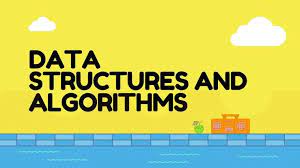Description
Introduction
NoSQL databases have emerged as a popular alternative to traditional relational databases, offering flexibility, scalability, and high performance for handling unstructured and semi-structured data. This course, “NoSQL Databases: Administration and Management,” is designed to provide participants with a comprehensive understanding of various NoSQL database models and the skills required to administer and manage these systems effectively. By the end of the NoSQL Database Administrators course, participants will be equipped to choose and implement the right NoSQL solutions for their organizational needs.
Prerequisites of NoSQL
- Basic Understanding of Database Concepts
- Familiarity with SQL and Relational Databases
- General IT Knowledge and Programming Fundamentals
Table of Contents
- Introduction to NoSQL Databases
1.1 Overview of NoSQL Database Models (Document, Key-Value, Column-Family, Graph)
1.2 Comparing NoSQL and Traditional RDBMS(Ref: Oracle RDBMS Course)
1.3 Key Use Cases for NoSQL Databases - Installation and Configuration
2.1 Setting Up NoSQL Databases (MongoDB, Cassandra, Redis, etc.)
2.2 Configuration Best Practices for Performance and Security
2.3 Tools for Managing NoSQL Database Environments - Data Modeling in NoSQL
3.1 Understanding Data Models for NoSQL Databases
3.2 Designing Schemas for Document and Column-Family Stores
3.3 Best Practices for Data Modeling in NoSQL - User Management and Security
4.1 Authentication and Authorization Mechanisms in NoSQL
4.2 Role-Based Access Control (RBAC)
4.3 Implementing Security Best Practices - Performance Monitoring and Optimization
5.1 Key Performance Metrics for NoSQL Databases
5.2 Monitoring Tools and Techniques
5.3 Query Optimization and Indexing Strategies - Backup and Recovery Strategies
6.1 Implementing Backup Solutions for NoSQL Databases
6.2 Disaster Recovery Planning and Implementation
6.3 Data Integrity and Consistency Checks - Scaling NoSQL Databases
7.1 Horizontal vs. Vertical Scaling
7.2 Sharding and Partitioning Techniques
7.3 Load Balancing for NoSQL Systems - Troubleshooting Common Issues
8.1 Identifying and Resolving Performance Issues
8.2 Analyzing Logs and Monitoring Alerts
8.3 Handling Data Corruption and Failures - Integration and Interoperability
9.1 Integrating NoSQL Databases with Other Technologies
9.2 Working with APIs and Data Pipelines
9.3 Utilizing NoSQL with Big Data Technologies - Future Trends in NoSQL Databases
10.1 Emerging Technologies and Innovations in NoSQL
10.2 The Role of AI and Machine Learning in NoSQL Management
10.3 Best Practices for Continuous Learning and Development
Conclusion
NoSQL Database Administrators this course provides participants with essential knowledge and practical skills for effectively managing NoSQL systems. By covering various database models, administration tasks, and best practices, participants will be well-prepared to implement and maintain NoSQL databases, ensuring high performance, scalability, and security in their organizations.







Reviews
There are no reviews yet.